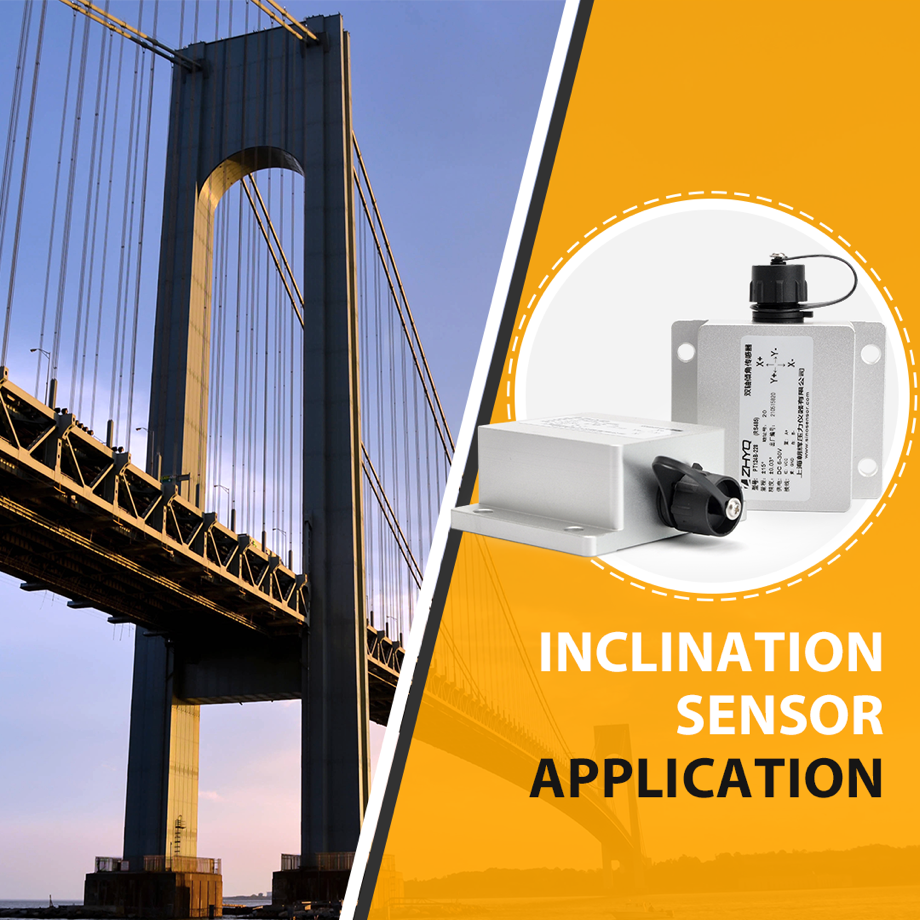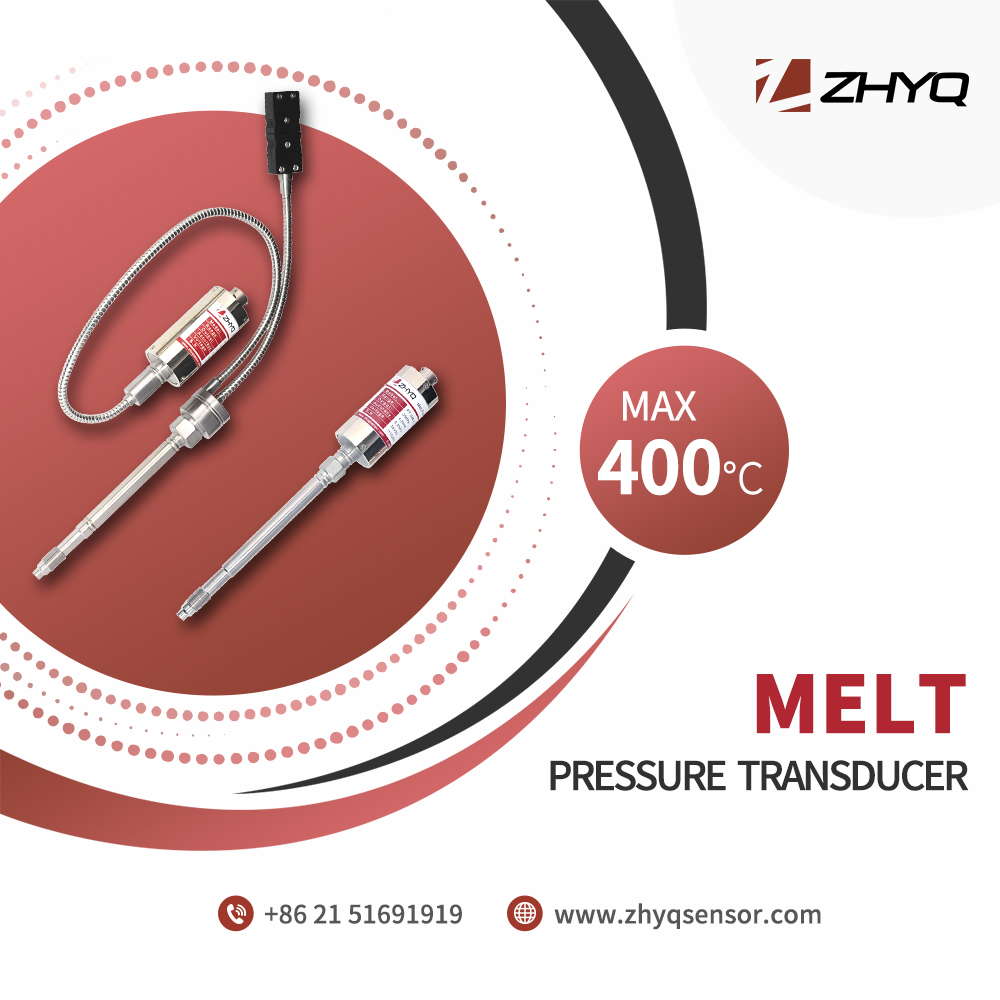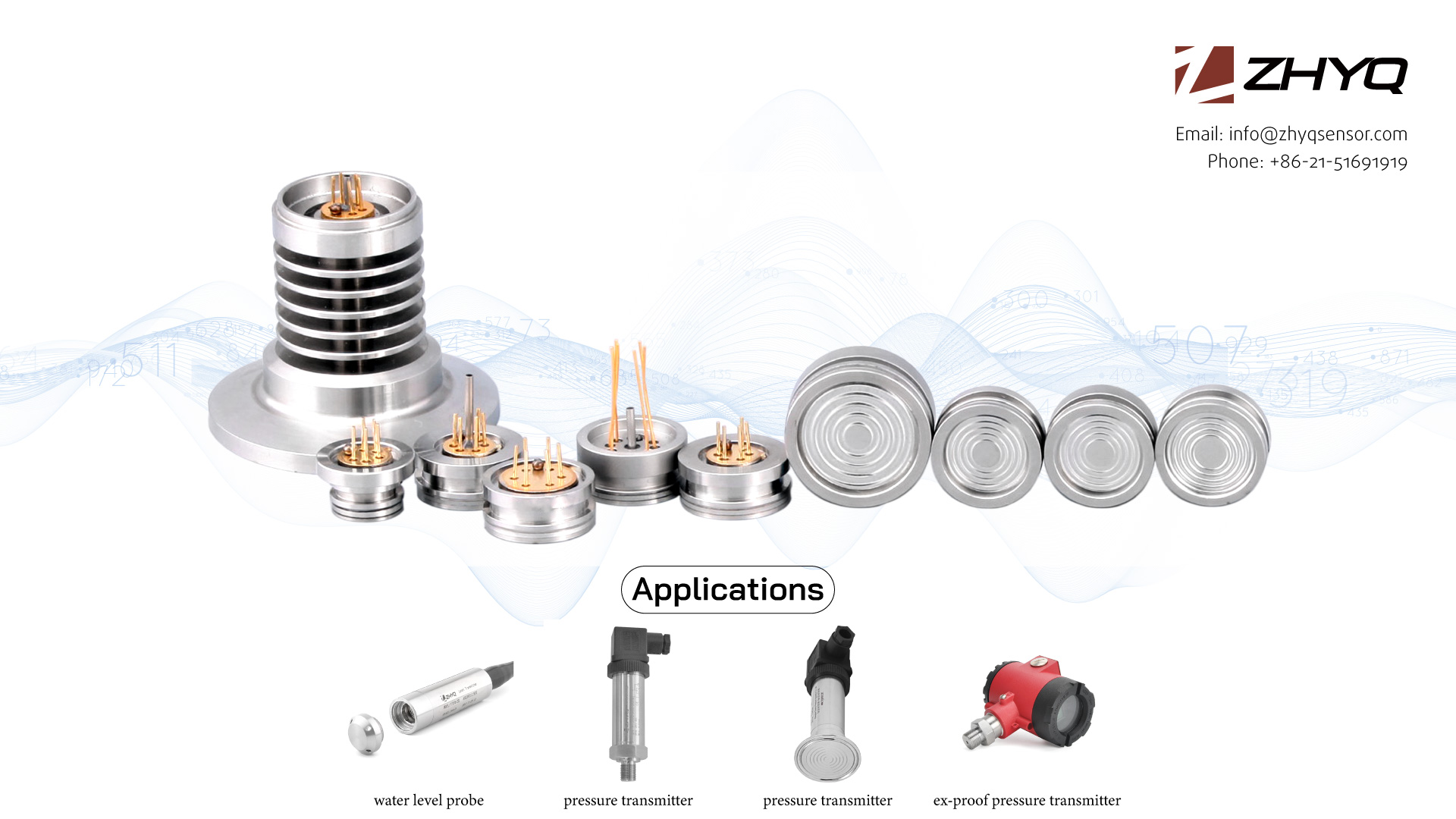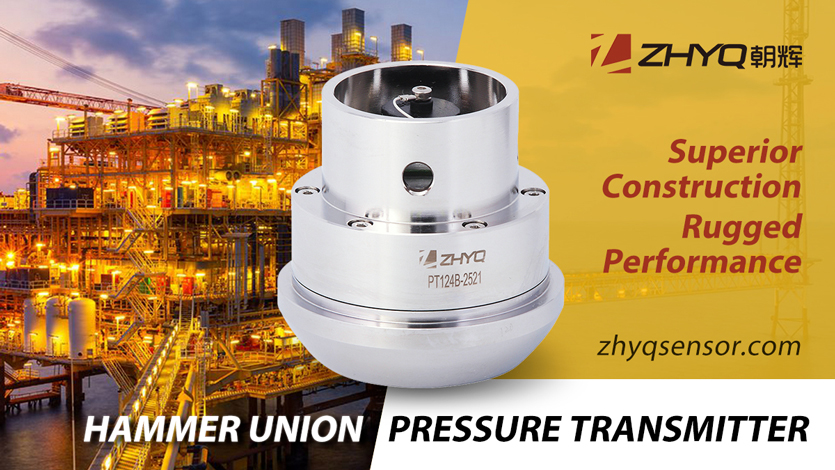
- Pressure Sensor, Pressure Transducer, Pressure Transmitter


- 2022-08-16
- Zhyq
- 49
Inclination Sensor Application in Different Industries
Inclination sensor is an acceleration sensor that uses the principle of inertia to measure the change of inclination relative to the horizontal plane. It is widely used in a variety of angle measurement applications. Below are some of the applications where inclination sensor is used:
- Bridge structure health monitoring
Due to the nature of bridge, weather is one of the key factors on all types of bridges. It is very important to monitor real-time bridge health status to avoid any serious incident from happening.
The bridge health monitoring system includes environment monitoring, deformation monitoring, stress and strain monitoring, and bridge deck load monitoring, etc. Change in tilt angle is a significant factor to any potential incident. Inclination sensor can communicate with our monitoring system to monitor any changes and send warning messages to operator.
Inclination Sensor are usually placed on the bridge deck and pylons to measure the deformation of the bridge under load and evaluate the integrity and stability of the bridge structure, respectively. the bridge tower is another place that needs to be measured by inclination sensor.
To a certain extent, the inclination value of the bridge tower reflects whether the integrity and stability of the bridge structure are affected, and whether it will endanger the safety of the bridge.
- In Rotary Drilling Rig Operation
Rotary drilling rig is widely used in Building and Construction industry. Most common drilling environment are through sandy soil, clay soil, silty soil and other soil layers.
The barycentre position of rotary drilling rig is the key factor affecting its stability. Both static and dynamic factors are the most important factors that can affect the centre of gravity on rotary drilling machines. Static factors including the angle between chassis and horizontal plane, the position of the luff mechanism, the tilt of the mast, the weight of each component of the rig, etc.
Dynamic factors such as adding pressure, lifting force, turning speed, etc. The rotary Centre of drilling rig are normally set as the origin of coordinates when calculating rotating drill centre. The calculation is based on data collected from inclination sensor installed on luffing boom, mast and the machine body.
In addition, the direction of the drill bit on a hydraulic rig determines the success of the drilling process. Inclination sensors are built into the bit to analyse real-time status of the drill bit.
- Aerial Work Platform Monitoring
It is very important to keep our aerial work platform flat and steady to minimise risks and avoid any potential hazard. Monitoring system can communicate with our inclination sensor to show real-time angle of the whole platform. It is a key contributor to our safe working environment on an aerial work platform.
Inclination sensor are widely used in aerial works for building construction and maintenance. For any aerial works requires a platform for operator, our inclination sensor is installed on the bottom chassis of the platform to detect any anomalies. The system will send highlighted warning message to operator if there are any changes in platform angle.
- Machinery and Vehicles from Various Industries
Inclination sensor is widely used on machines and vehicles across varies industries such as agricultural, manufacture, development and construction. It is a very reliable instrument that can improve safety level in filed operation and warn operator for any potential risks. It is also a bonus instrument that can improve work efficiency.
Among all these industries, efficiency is a key factor for company to improve their revenue and performance. For example, due to nature of soil, our agricultural machinery and equipment can easily lose traction and move slowly.
With an installed inclination sensor on the hydraulic control system, operators can determine best practices with real-time data. Hence to get the work done nicely and quickly.
Leave Your Inquiry
Your email address will not be published. Required fields are marked *


